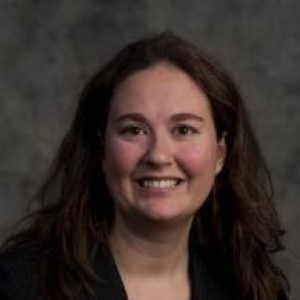 Dr. Anisa Fornoff is an Associate Professor of Pharmacy at Drake University. She is also a faculty fellow with the Office of Community Engaged Learning & Service, and enjoys working with people in the Des Moines area with disabilities.
Dr. Anisa Fornoff is an Associate Professor of Pharmacy at Drake University. She is also a faculty fellow with the Office of Community Engaged Learning & Service, and enjoys working with people in the Des Moines area with disabilities.
What is your role within the Office of Community Engaged Learning & Service?
I was on the original search committee to hire the Service Learning Director. Now, I assist the office in promoting community engaged learning to faculty. Essentially I am showing faculty members new and different possibilities to used this engaged learning in their classrooms.
What kind of work do you do in the classroom?
I provide my students an opportunity to engage in different learning experiences. We work outside of the classroom to enhance the work we do in the classroom. One example of this is the work I do with my FYS, Portrayal/Mental Illness. We work closely with Ruby Van Meter, a public, special education Kindergarten through 8th Grade Des Moines school. We partner with a classroom and a teacher for a service learning project, which is entirely based on what the teacher wants in their room. We also help run their Homecoming Carnival Party, and this is something my students love doing.
How did you get involved in your work with people with disabilities?
The Pharmacy faculty members are contracted to work with other companies. I spent 15 years with Progress Industries, and one year with Lutheran Behavioral Specialists. I knew about this requirement when I applied for the position at Drake, and I wanted to give back in a way that was meaningful to me and my beliefs. Working closely with people with disabilities was a new experience for me, and constantly allows me to be more understanding of differences, as well as be a voice for those whose voices aren’t heard. Through this work, various opportunities have opened, especially in the work my students do.
What other opportunities have you had?
My FYS is now also involved with Passageway, a community-based safe space for people with disabilities where they can work to improve the skills needed in life, such as job-related skills and various social skills. Every November, my FYS visits Passageway and serves a Thanksgiving meal to the members there.
How does your FYS react to doing this type of service work?
There are a lot of representations of mental illness and disabilities in the media. Most of them are inaccurate, but these representations are what my students come in with. Unless you work with people with disabilities, you can’t fully understand them. At the start of the semester, I make it very clear that they are working with people with disabilities. Through the duration of the course, my FYS takes the connection and brings it into something else they are involved with at Drake. They begin to see how they are impacting the community, and most of them keep up with aiding people with disabilities. Some take part in Best Buddies. Some help coach cheerleading for people with disabilities. Some continue to work with Ruby Van Meter in creating and completing projects. It is clear that they have a takeaway that is meaningful.
Do you do service work with any of your other classes?
For my Pharmacy students, we coordinate an elder care experience that gets them thinking about health care in a different way. The goal of the Pharmacy project is to get the students to work on communication and professionalism, as well as empathy. When these young people visit, they provide one-on-one interactions which quickly leads to companionship. Every semester, I give my students a reflection about the work they did over the duration of the course. These reflections show how this course impacted them, and most of them are positive. They think about how this experience can impact them professionally, and for a lot of them, it is their first time having to communicate with a different population. I split my students in half, so that we can provide a constant presence throughout the school year. Half of my students do this work in the fall, while the other half do this work in the spring. They read the newspaper, help write letters, play BINGO, and some also bring guitars and play music for them. I have noticed that my students seem to love this way of teaching. We are accomplishing the same objectives but in different ways. This allows not only an opportunity to be taught about the industry, but also about life.
This interview has been edited and condensed for clarity.